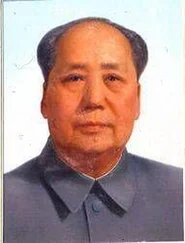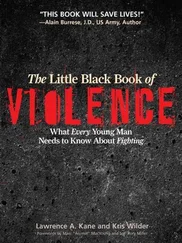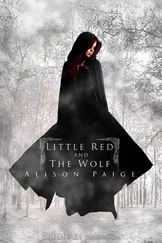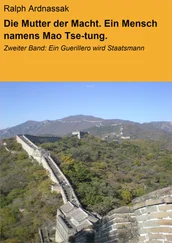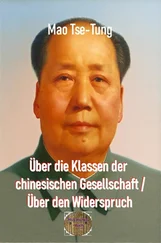Tse-tung Mao - The Little Red Book
Здесь есть возможность читать онлайн «Tse-tung Mao - The Little Red Book» весь текст электронной книги совершенно бесплатно (целиком полную версию без сокращений). В некоторых случаях можно слушать аудио, скачать через торрент в формате fb2 и присутствует краткое содержание. Жанр: Политика, на английском языке. Описание произведения, (предисловие) а так же отзывы посетителей доступны на портале библиотеки ЛибКат.
- Название:The Little Red Book
- Автор:
- Жанр:
- Год:неизвестен
- ISBN:нет данных
- Рейтинг книги:5 / 5. Голосов: 1
-
Избранное:Добавить в избранное
- Отзывы:
-
Ваша оценка:
- 100
- 1
- 2
- 3
- 4
- 5
The Little Red Book: краткое содержание, описание и аннотация
Предлагаем к чтению аннотацию, описание, краткое содержание или предисловие (зависит от того, что написал сам автор книги «The Little Red Book»). Если вы не нашли необходимую информацию о книге — напишите в комментариях, мы постараемся отыскать её.
The Little Red Book — читать онлайн бесплатно полную книгу (весь текст) целиком
Ниже представлен текст книги, разбитый по страницам. Система сохранения места последней прочитанной страницы, позволяет с удобством читать онлайн бесплатно книгу «The Little Red Book», без необходимости каждый раз заново искать на чём Вы остановились. Поставьте закладку, и сможете в любой момент перейти на страницу, на которой закончили чтение.
Интервал:
Закладка:
"The Orientation of the Youth Movement" (May 4, 1939), Selected Works, Vol. II, p. 246.
The intellectuals often tend to be subjective and individualistic, impractical in their thinking and irresolute in action until they have thrown themselves heart and soul into mass revolutionary struggles, or made up their minds to serve the interests of the masses and become one with them. Hence although the mass of revolutionary intellectuals in China can play a vanguard role or serve as a link with the masses, not all of them will remain revolutionaries to the end. Some will drop out of the revolutionary ranks at critical moments and become passive, while a few may even become enemies of the revolution. The intellectuals can overcome their shortcomings only in mass struggles over a long period.
"The Chinese Revolution and the Chinese Communist Party" (December 1939), Selected Works, Vol. II, p. 322.*
Apart from continuing to act in co-ordination with the Party in its central task, the Youth League should do its own work to suit the special characteristics of youth. New China must care for her youth and show concern for the growth of the younger generation. Young people have to study and work, but they are at the age of physical growth. Therefore, full attention must be paid both to their work and study and to their recreation, sport and rest.
Talk at the reception for the Presidium of the Second National Congress of the Youth League (June 30, 1953).
31. WOMEN
A man in China is usually subjected to the domination of three systems of authority [political authority, clan authority and religious authority]… As for women, in addition to being dominated by these three systems of authority, they are also dominated by the men (the authority of the husband). These four authorities - political, clan, religious and masculine - are the embodiment of the whole feudal-patriarchal ideology and system, and are the four thick ropes binding the Chinese people, particularly the peasants. How the peasants have overthrown the political authority of the landlords in the countryside has been described above. The political authority of the landlords is the backbone of all the other systems of authority. With that overturned, the clan authority, the religious authority and the authority of the husband all begin to totter… As to the authority of the husband, this has always been weaker among the poor peasants because, out of economic necessity, their womenfolk have to do more manual labour than the women of the richer classes and therefore have more say and greater power of decision in family matters. With the increasing bankruptcy of the rural economy in recent years, the basis for men's domination over women has already been undermined. With the rise of the peasant movement, the women in many places have now begun to organize rural women's associations; the opportunity has come for them to lift up their heads, and the authority of the husband is getting shakier every day. In a word, the whole feudal-patriarchal ideology and system is tottering with the growth of the peasants' power.
"Report on an Investigation of the Peasant Movement in Hunan " (March 1927), Selected Works, Vol. I, pp. 44-46.*
Unite and take part in production and political activity to improve the economic and political status of women.
Inscription for the magazine, Women of New China, printed in its first issue, July 20, 1949.
Protect the interests of the youth, women and children - provide assistance to young students who cannot afford to continue their studies, help the youth and women to organize in order to participate on an equal footing in all work useful to the war effort and to social progress, ensure freedom of marriage and equality as between men and women, and give young people and children a useful education…
"On Coalition Government" (April 24, 1945), Selected Works, Vol. III, p. 288.*
[In agricultural production] our fundamental task is to adjust the use of labour power in an organized way and to encourage women to do farm work.
"Our Economic Policy" (January 23, 1934), Selected Works, Vo1. I, p. 142.*
In order to build a great socialist society it is of the utmost importance to arouse the broad masses of women to join in productive activity. Men and women must reccive equal pay for equal work in production. Genuine equality between the sexes can only be realized in the process of the socialist transformation of society as a whole.
Introductory note to "Women Have Gone to the Labour Front" (1955), The Socialist Upsurge in China's Countryside, Chinese ed., Vol. I.
With the completion of agricultural cooperation, many co-operatives are finding themselves short of labour. It has become necessary to arouse the great mass of women who did not work in the fields before to take their place on the labour front… China 's women are a vast reserve of labour power. This reserve should be tapped in the struggle to build a great socialist country.
Introductory note to "Solving the Labour Shortage by Arousing the Women to Join in Production" (1955), The Socialist Upsurge in China's Countryside, Chinese ed., Vol. II.
Enable every woman who can work to take her place on the labour front, under the principle of equal pay for equal work. This should be done as quickly as possible.
Introductory note to "On Widening the Scope of Women's Work in the Agricultural Co-operative Movement" (1955), The Socialist Upsurge in China's Countryside, Chinese ed., Vol. I.
32. CULTURE AND ART
In the world today all culture, all literature and art belong to definite classes and are geared to definite political lines. There is in fact no such thing as art for art's sake, art that stands above classes, art that is detached from or independent of politics. Proletarian literature and art are part of the whole proletarian revolutionary cause; they are, as Lenin said, cogs and wheels in the whole revolutionary machine.
"Talks at the Yenan Forum on Literature and Art" (May 1942), Selected Works, Vol. III, p. 86.*
Revolutionary culture is a powerful revolutionary weapon for the broad masses of the people. It prepares the ground ideologically before the revolution comes and is an important, indeed essential, fighting front in the general revolutionary front during the revolution.
"On New Democracy" (January 1940), Selected Works, Vol. II, p. 382.
All our literature and art are for the masses of the people, and in the first place for the workers, peasants and soldiers; they are created for the workers, peasants and soldiers and are for their use.
"Talks at the Yenan Forum on Literature and Art" (May 1942), Selected Works, Vol. III, p. 84.*
Our literary and art workers must accomplish this task and shift their stand; they must gradually move their feet over to the side of the workers, peasants and soldiers, to the side of the proletariat, through the process of going into their very midst and into the thick of practical struggles and through the process of studying Marxism and society. Only in this way can we have a literature and art that are truly for the workers, peasants and soldiers, a truly proletarian literature and art.
Ibid ., p. 78.
[Our purpose is] to ensure that literature and art fit well into the whole revolutionary machine as a component part, that they operate as powerful weapons for uniting and educating the people and for attacking and destroying the enemy, and that they help the people fight the enemy with one heart and one mind.
Ibid ., p. 70.
In literary and art criticism there are two criteria, the political and the artistic…
There is the political criterion and there is the artistic criterion; what is the relationship between the two? Politics cannot be equated with art, nor can a general world outlook be equated with a method of artistic creation and criticism. We deny not onlv that there is an abstract and absolutely unchangeable political criterion, but also that there is an abstract and absolutely unchangeable artistic criterion; each class in every class society has its own political and artistic criteria. But all classes in all class societies invariably put the political criterion first and the artistic criterion second… What we demand is the unity of politics and art, the unity of content and form, the unity of revolutionary political content and the highest possible perfection of artistic form. Works of art which lack artistic quality have no force, however progressive they are politically. Therefore, we oppose both works of art with a wrong political viewpoint and the tendency towards the "poster and slogan style" which is correct in political viewpoint but lacking in artistic power. On questions of literature and art we must carry on a struggle on two fronts.
Читать дальшеИнтервал:
Закладка:
Похожие книги на «The Little Red Book»
Представляем Вашему вниманию похожие книги на «The Little Red Book» списком для выбора. Мы отобрали схожую по названию и смыслу литературу в надежде предоставить читателям больше вариантов отыскать новые, интересные, ещё непрочитанные произведения.
Обсуждение, отзывы о книге «The Little Red Book» и просто собственные мнения читателей. Оставьте ваши комментарии, напишите, что Вы думаете о произведении, его смысле или главных героях. Укажите что конкретно понравилось, а что нет, и почему Вы так считаете.

